One of the distinctive aspects of ADHD in adults is an overwhelming sense of underachievement. Sometimes this is due to them never getting out of the gate while their peers race ahead, and sometimes they have actually accomplished a great deal, but from the wrong ToDo lists. Both examples can leave ADHD adults with a pervasive feeling of underachievement, even if they accomplish a great deal more than their peers.
I imagine the skeptics out there are sitting up and asking, “But doesn’t everybody miss goals? Don’t even overachievers miss goals? Everybody misses goals!” I’ve heard similar comments like that for years from people who believe ADHD is a myth. It makes me wonder if they are the type of people to dismiss the sickness of a loved one with “What are you complaining about? Everybody sneezes. Everybody coughs.” As you can guess from the example, it’s not the symptom itself that marks a problem, it’s the intensity and quantity of the symptom. Yes, everybody does indeed miss goals here and there. It’s a part of life. What makes this unique for people with ADHD, is that the sense of underachievement is overwhelming, sometimes to the point of becoming debilitating. Many adults with ADHD are so used to falling short of the mark that they come to expect it of themselves.
Therapists will focus on this sense of underachievement, giving the patient advice on how to think better about themselves, how to be better focused, and how to give themselves credit for what they have successfully accomplished. This is good and necessary advice. A lifetime of under par performances, mistakes, and reprimands creates very low self-esteem.
The Exceptions to the Rule
It’s interesting to note, however, that not all adults with ADHD have this problem. If you’ve studied ADHD online, you’ve come across the lists of successful people who have ADHD. Actress Emma Watson, singers Britney Spears and Justin Timberlake, JetBlue founder David Neeleman, Glenn Beck, and Virgin Group founder Sir Richard Branson have publicly stated that they have ADHD. The message of the lists is clear. “Don’t give up! You can succeed with ADHD!” The questions I always had after seeing those lists, though, was how do they do it? What’s their trick? What are they doing differently that I am not? How do their thoughts about ADHD shortcomings diverge from mine? In the past, when I was floundering, these lists didn’t help me. You might as well have told me to be perfect. I was too deep in the flaw. What I learned over time, however, was that the answer to all those questions was simple: Stop thinking of ADHD as having only shortcomings.
I believe that every character flaw is a talent gone awry. Strong self-confidence can become arrogance. Laser focus can become tunnel vision. It’s the excess that turns a talent into a flaw. If we come at ADHD’s sense of underachievement from the opposite direction—as a talent gone awry or as an advantage instead of a shortcoming—what could the upside of such a damaged sense of self be?
A Compelling Awareness of What Needs to Be Achieved
Celebrities and business execs with ADHD experience failure just like everybody else, but they prioritize their focus on what needs to be done in the future instead of focusing on what hasn’t been done in the past. They take our lovely ADHD hyperfocus and apply it to progress instead of rumination. It’s a matter of perception: positive vs. negative. Obviously, I have no crystal ball into the minds of others. However, I have read their interviews. New projects and lists of things to do are treated by them as opportunities to display their abilities, not future evidence of their failure.
David Neeleman of JetBlue understands this quite well. “I knew I had strengths that other people didn’t have, and my parents reminded me of them when my teachers didn’t see them.” A positive perspective makes a monumental difference in how they approach a project as opposed to those who are shackled with an overwhelming sense of underachievement. Successful people in general give themselves credit where credit is due. They are satisfied with their efforts and feel good about themselves. The ADHD twist on this is intensity, frequency, and hyperfocus. They are not only aware of what needs to be done, they feel compelled to go do it.
Turning a Sense of Underachievement into an Awareness of What Needs to Be Achieved
Before we can flip the switch on this ADHD trait from detriment to asset, we should understand that knowing what needs to be done is not the same as never being satisfied with our efforts. In my experience, people confuse the two concepts whether they have ADHD or not. I have been cautioned in my past on many occasions because people assumed I was never satisfied with my efforts when in reality, I was fully focused on what needed to come next. The problem was that I had low self-esteem and allowed their words to deflate me. And who knows? Maybe I was a lot more negative than I should have been, giving others fuel to criticize and caution. I was certainly not as self-confident then as I am now. I hadn’t learned what Paul Orfalea of Kinko’s had learned: "With ADD, you’re curious. Your eyes believe what they see. Your ears believe what others say. I learned to trust my eyes.”³
To learn to trust ourselves after a lifetime of being swatted on the nose, we need to change our perspective. We already have the awareness of what needs to be achieved. The problem is that it’s focused backwards. Because of this, we’ve developed negative cognitive habits. Try these exercises to help train your ADHD mind to think forward.
- Let the past go – For many of us, our past mistakes were used like a rolled up newspaper to punish us. With all the mistakes that people with ADHD tend to make, this turned attention in our lives to our failures. Now it’s time we stopped dwelling on the mistakes of the past. It’s not healthy or constructive. As soon as you realize you’re dwelling on your lack of achievements again, stop, then focus instead on something you’re looking forward to. If you must think about an unfinished project in your past, form a mental image of how you could have done things differently, then jot down on a piece of paper your devised action plan. Now crumple it up and throw it out. The trick is to commit to doing things differently next time, but turn your focus onto something you have control over. Learn to think forward. Apply yourself to things you can still change.
- Think of one positive personal accomplishment every day – Since appreciating our strengths, skills, and accomplishments doesn’t come naturally for many of us, we need to practice at it. Think of a positive thing that you’ve done. Write it down. When that gets easy, think of two. Do this every day for three weeks, and you’ll be on your way to a new habit. For some of you, it will be difficult at first. Being positive about your accomplishments may not come naturally. Your sense of self-worth, as mine once was many years ago, may be so wrapped up in a pervasive identity of failure that you cannot conceive you’ve done anything good or worthwhile, so start small. I’m not talking about making a list of grand achievements that shaped mankind. Think about the small things that you do despite your ADHD every day—the tiny victories that need to be knowledged. “I was on time to work today,” “I didn’t talk over anybody,” or even “Paperwork filed on time.” Climb higher and avoid the low hanging fruit after a few days. You are more accomplished than you realize.
- Pick two to three past projects, and fix them on paper – If you’re having a hard time letting go of the past, it might be a productive mental exercise to pick three projects that you feel were personal failures, then write down on a sheet of paper the things that you did right versus the things that you did wrong. If it helps, record it on audio or video. Whichever way works best for your thought process. Analyze the project’s ups and downs, but only address the elements that you had control over. There may be any number of reasons why a project failed, but it’s easy to blame other people. Focus only on your responsibilities. What could you have done differently? Then commit yourself to doing those things differently in the future. If you feel anchored in your past, this may be a way of helping you process the past in a more constructive fashion. However, if you cannot trust yourself to keep this as a mental exercise only, go on to the next step.
- Pick three projects and plan out how to fix them – Those famous people with ADHD who aren’t burdened by a sense of underachievement are doers. They are always busy working on the next thing. It’s time for you to work on the next thing. Pick a project, small in scope, that you can finish in perhaps a day or two. Organize your time so that you can tackle this project from start to finish, and then go do it! Afterwards, be prepared to feel good about it. Then start the next project. Build on the complexity of the previous projects. If these projects dovetail well with work, then all the better, but if that’s too big of a leap, start with something small. Tackle your email box. Tackle that pile in the den. If you have a taste for something more complex, tackle the garage, for example. Break the project down into smaller steps, and take on each step one at a time so that you don’t get sacked. The trick here is to do something small scale and simple that gives you a sense of accomplishment. There may be other ADHD traits that affect your ability to undertake this step, which is why I recommend that you start small. Persevere. It’s worth the effort.
I can’t emphasize enough how important it is to start small, then build up to greater complexity. You won’t be doing yourself any favors if you impatiently take on massive projects. You don’t want to have yet another project abandoned in your backyard or yet another unfinished task to weigh upon your mind. However, if you can train yourself to think forward for a change, can think positively about yourself, and can follow through on finishing small projects, you will be well on your way towards flipping the switch on this ADHD trait. When hyperfocus is coupled with healthy self-esteem and a game plan, the ADHD adult is grounded in a sense of self-accomplishment and armed with powerful tools for success.
⁂
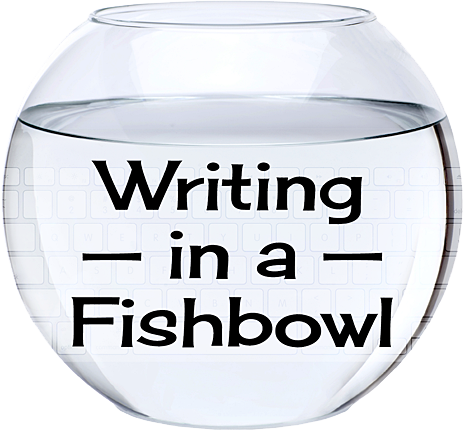
Saturday – 6:58 PM: My original goal was to publish a draft of a chapter from my Twelve Ways to Fight Off Depression book every week, and do the same for Upsides to ADHD on the 10th, 20th, & 30th. Obviously, that has not happened. While it is true that I’ve been sick with a nasty virus for the past FIVE weeks, the amount of work involved in these two first chapters is making me rethink my game plan. I love pingponging between the two subjects, which works wonderfully with my ADHD, but I don’t want to sacrifice quality in order to make a self-imposed deadline. I will give myself March to see if I can pull this off, then reevaluate my plans accordingly. It’s only by pushing myself that I can discover my limitations, then devise workarounds.
In the meantime, research is mostly done for Pokémon Ultra Beasts in 5 Easy Steps. I’m still trying to discern a repeatable path from Ultra Beast to the older Legendaries. Since Pokémon Sun and Moon (SuMo) are Generation VII games, they have a brand new format for Pokémon making them incompatible with older games, similar to the break of Gen III from Gen II. Moving a Pokémon from Omega Ruby or Alpha Sapphire (ORAS), for example, requires a Pokébank account, then first transferring the beastie from ORAS to the bank, then transferring it into SuMo. Needless to say, not a lot of people bother doing that except collectors, so those old legendaries are hard to get. You have to be offering exactly what a rare few people are looking for. At any rate, I hope to wrap that research up over the weekend. Then I can add writing this sequel to my list of too many things to do.
⁂
If you want to know more about the books I have already written, you might find this stupendous link click worthy.





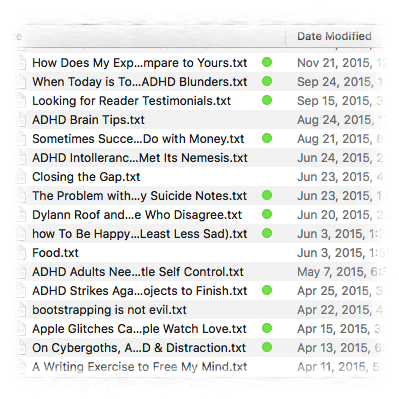
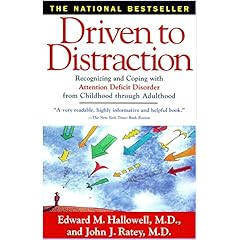



 Researchers at
Researchers at 
 I am still paying the price for pushing myself in June, and I thought it was time to share with you what I’ve been up to, how it went, what worked, and what I could have done better. The TL;DR version is that I did too much, loved almost every moment of it, and then I ended up feeling like a haggard and disheveled octogenarian who had dragged a couch up a mountain trail.
I am still paying the price for pushing myself in June, and I thought it was time to share with you what I’ve been up to, how it went, what worked, and what I could have done better. The TL;DR version is that I did too much, loved almost every moment of it, and then I ended up feeling like a haggard and disheveled octogenarian who had dragged a couch up a mountain trail. 


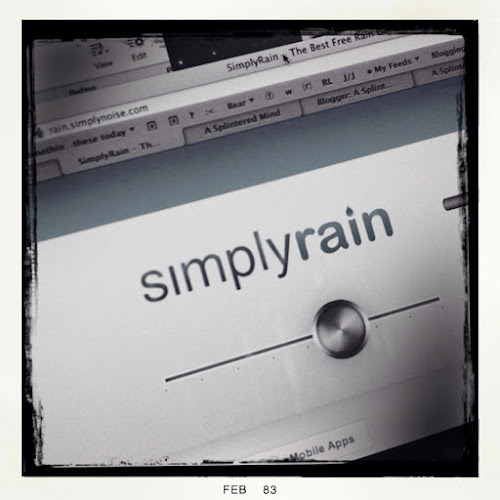




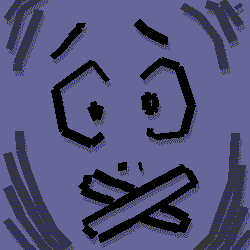 One of the comments from last week's column was a terse reprimand by a woman (I assume) who urged me to not think so much and do instead. Ignoring the fact that her short comment judged my life by only the words of a humorous column I write each week, she also showed a lack of understanding of the AD/HD mind.
One of the comments from last week's column was a terse reprimand by a woman (I assume) who urged me to not think so much and do instead. Ignoring the fact that her short comment judged my life by only the words of a humorous column I write each week, she also showed a lack of understanding of the AD/HD mind.